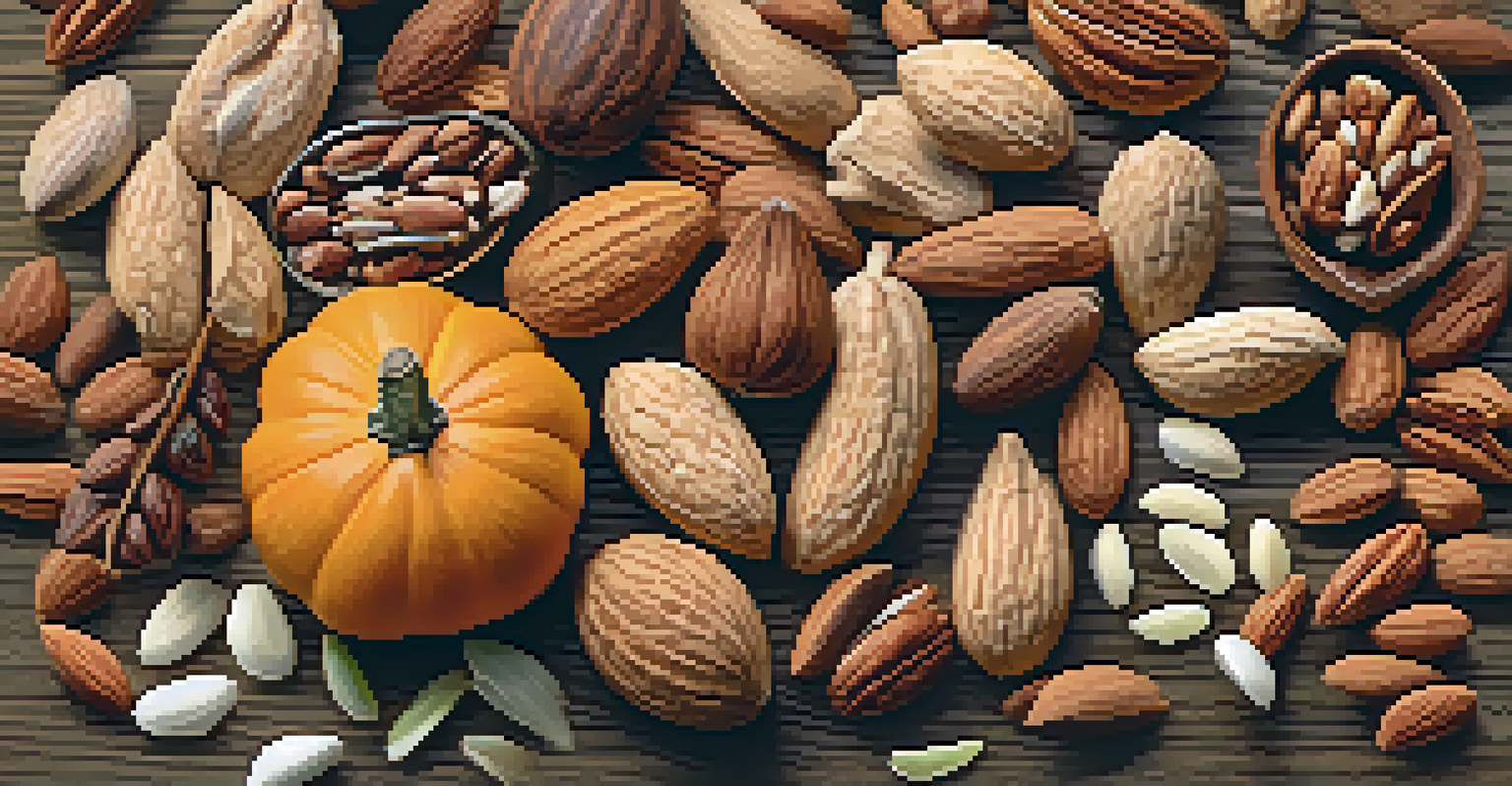Understanding the Raw Food Diet's Effect on Gut Microbiota

What is the Raw Food Diet and Its Principles?
The raw food diet is based on the consumption of unprocessed, uncooked foods, primarily fruits, vegetables, nuts, and seeds. Advocates believe that heating food destroys its natural enzymes and nutrients, which are vital for optimal health. By focusing on raw foods, followers aim to enhance their nutritional intake and promote overall well-being.
Let food be thy medicine and medicine be thy food.
Many people are drawn to this diet not only for its potential health benefits but also for its simplicity and connection to nature. Imagine picking fresh fruits and veggies, washing them, and enjoying them as they are—there's a certain appeal to that! This approach is often seen as a return to a more natural way of eating, aligning with the belief that food should be as close to its original state as possible.
However, transitioning to a raw food diet can be challenging. It requires careful planning to ensure that one receives all essential nutrients while avoiding deficiencies. For example, protein sources might need to be sourced from raw nuts and seeds, which can be less familiar to some.
The Role of Gut Microbiota in Our Health
Gut microbiota refers to the trillions of microorganisms residing in our digestive system. These tiny creatures play a significant role in digestion, nutrient absorption, and even immune function. Think of them as a bustling city of bacteria, each playing its part in maintaining your health and well-being.

A balanced gut microbiome can influence everything from mood to weight management, which is why maintaining its health is crucial. An imbalance in these microorganisms can lead to various health issues, including digestive disorders, allergies, and even chronic diseases. Therefore, nurturing a diverse and stable gut microbiota is key to promoting overall health.
Raw Diet Enhances Gut Health
The raw food diet promotes gut microbiota diversity, which is essential for overall digestive health.
Diet is one of the most impactful factors in shaping our gut microbiota. Different foods can either support or hinder the growth of beneficial microorganisms, making dietary choices crucial for maintaining a healthy gut.
How Raw Foods Impact Gut Microbiota Diversity
Raw foods are rich in fiber, antioxidants, and beneficial plant compounds, all of which can positively influence gut microbiota diversity. A diverse microbiome is essential for good health, as it improves resilience against diseases and enhances digestion. When you consume a variety of raw fruits and vegetables, you're essentially feeding a wider range of beneficial bacteria.
The gut is the seat of all health.
For example, the fiber found in raw foods acts as food for gut bacteria, promoting their growth and activity. This is similar to how a gardener nourishes different plants in a garden, allowing each species to thrive. The more diverse the plants, the healthier the garden—just as a diverse microbiome is crucial for a healthy gut.
Moreover, raw foods tend to be high in prebiotics, compounds that stimulate the growth of good bacteria in the gut. This not only helps maintain a balanced microbiome but can also improve digestion and nutrient absorption.
Potential Benefits of a Raw Food Diet for Gut Health
One of the most touted benefits of a raw food diet is its potential to improve digestive health. By consuming high-fiber foods, many people experience more regular bowel movements and reduced bloating. Imagine your gut as a highway—fiber helps keep everything moving smoothly along that route.
Additionally, raw foods can enhance the gut's ability to fight inflammation. Inflammatory gut conditions, such as irritable bowel syndrome (IBS), may benefit from the anti-inflammatory properties found in many raw fruits and vegetables. This can lead to a noticeable difference in comfort and overall digestive health.
Nutrient Balance is Crucial
While raw foods offer benefits, it’s vital to ensure adequate nutrient intake to avoid deficiencies.
Furthermore, improved gut health can contribute to better nutrient absorption. When the gut is functioning optimally, your body can better utilize the vitamins and minerals from the foods you eat, leading to an overall sense of vitality and well-being.
Challenges of the Raw Food Diet on Gut Microbiota
While a raw food diet has its benefits, it also presents challenges that can impact gut microbiota. For instance, the lack of cooked foods may lead to nutrient deficiencies, particularly in vitamins B12 and D, which are less abundant in raw fruits and vegetables. Without these nutrients, gut health could suffer over time.
Moreover, the high fiber content can be difficult for some individuals to digest, especially if their bodies are not accustomed to it. Transitioning too quickly to a high-fiber diet can lead to discomfort, gas, and bloating, which can deter individuals from sticking with the diet.
Lastly, the restrictive nature of raw food diets can lead to social and psychological challenges, such as feeling isolated during meals or struggling with cravings for cooked foods. This can impact one's overall relationship with food and, in turn, affect gut health.
How to Balance a Raw Food Diet for Gut Health
To maximize the benefits of a raw food diet while minimizing potential drawbacks, it’s essential to strike a balance. Including a variety of foods, such as nuts, seeds, and fermented options like sauerkraut, can provide essential nutrients and promote a healthy microbiome. Think of it as creating a colorful plate that nourishes your body on multiple levels.
Incorporating small amounts of cooked foods can also be beneficial. Lightly steaming vegetables can make some nutrients more bioavailable while still retaining much of their health benefits. This approach allows you to enjoy the best of both worlds—raw and cooked—without sacrificing nutrition.
Fiber Intake Must Be Managed
Transitioning to a high-fiber raw food diet can cause digestive discomfort if not approached gradually.
Additionally, staying hydrated and monitoring how your body responds to the diet can help you make informed choices. Keeping a food diary may be useful for tracking which foods make you feel great and which may cause discomfort, allowing for adjustments as needed.
Conclusion: The Raw Food Diet and Gut Health Connection
In summary, the raw food diet can have a significant impact on gut microbiota, promoting diversity and potentially enhancing gut health. However, it’s crucial to approach this lifestyle with a balanced perspective, considering both the benefits and challenges it presents. By being mindful of nutrient intake and listening to your body, you can create a sustainable and nourishing eating plan.
Remember, the goal is not just to eat raw for the sake of it but to cultivate a healthy gut microbiome that supports overall health. Think of your gut as a garden—nurturing it with a variety of foods allows it to flourish.

Ultimately, whether you choose to adopt a fully raw food diet or incorporate more raw foods into your routine, focusing on gut health can lead to a happier, healthier you. So, why not experiment and see how your body responds? Your gut will thank you!